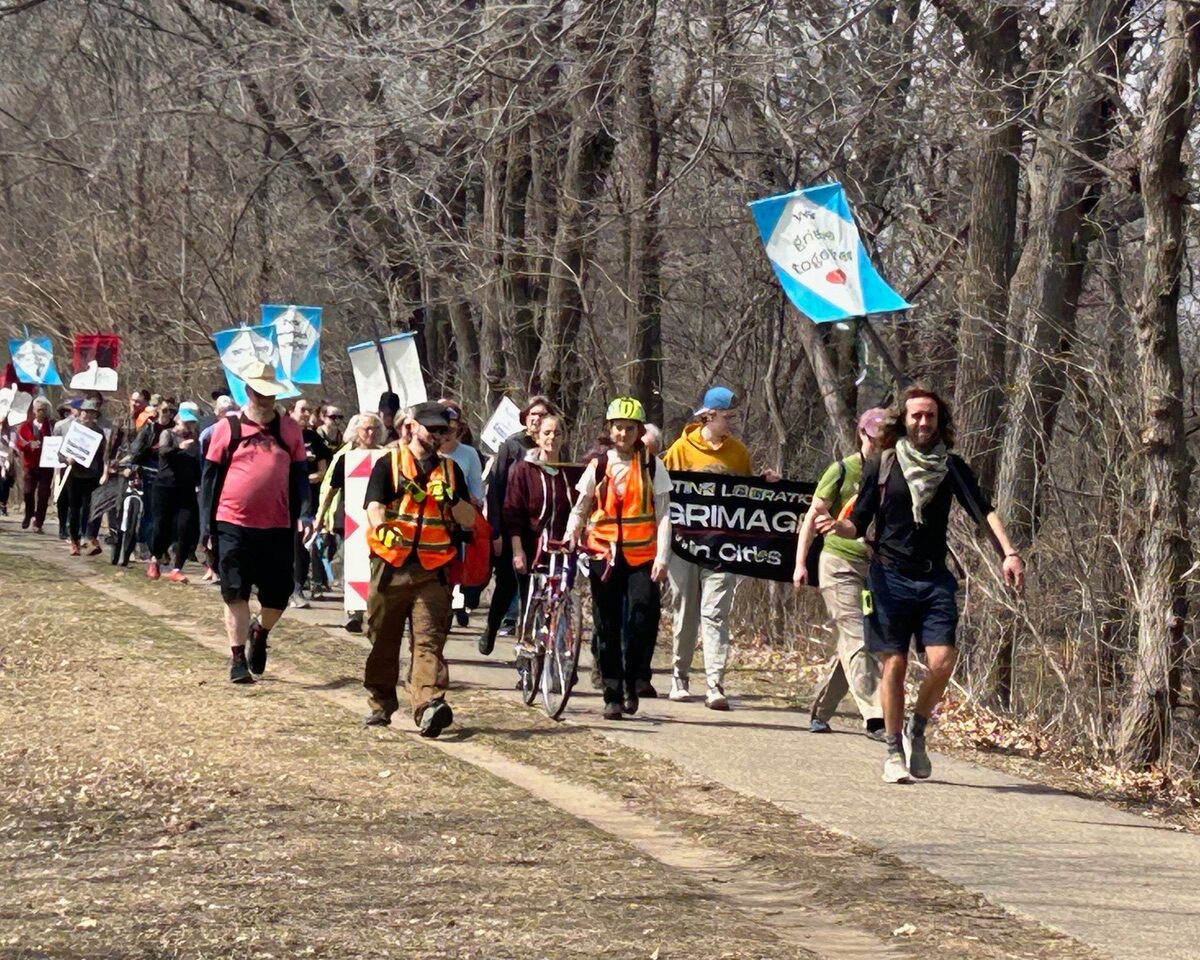
Cam Gordon
BY CAM GORDON
On June 16, a quiet Friday afternoon before a three-day weekend, with little advance notice, U.S. Attorney General Merrick Garland and other United States Justice Department staff held a press conference with city officials to announce the results of their two-year investigation into Minneapolis police and an agreement to negotiate a formal consent decree.
While government officials sounded hopeful that a mutually agreed-on list of changes as part of a court-monitored consent decree would lead to needed reforms, others outside the press conference called for prosecution and deeper accountability.
The report covers a wide range of practices that federal investigators found to be unlawful and unconstitutional. They concluded that “there is reasonable cause to believe that the city engaged in a pattern or practice of excessive force, unlawful discrimination against Black and Native American people, unlawful responses to protected First Amendment activities and unlawful discrimination against people with behavioral health disabilities.”
“We reviewed MPD’s 19 police shootings and one in-custody death from Jan. 1, 2016, to Aug. 16, 2022,” said Assistant Attorney General Kristen Clarke. “Many of these incidents were unconstitutional uses of deadly force. We found that officers used deadly force without probable cause to believe that there was an immediate threat of serious physical harm to the officer or another person. In one example, an off-duty officer fired his gun at a car containing six people within three seconds of getting out of his squad car.”
After reviewing over 180,000 police stops made between 2016 and 2022, they found that police disproportionately stopped Black and Native American people. They also performed searches more frequently and used force more frequently than during stops involving white people.
“We also found that the MPD violates people’s First Amendment rights by retaliating with force against people engaged in protests and engaged in demonstrations,” Clarke said. “We found that the police department retaliates against people who challenge or question them during stops and calls for service. The Constitution protects the right to criticize officers, even with profanity. We also found that MPD officers retaliate against people who observe and record them, even though they have a right to do so. All of this violates the law.”
The city’s mayor and chief of police stood with Garland and also spoke at the press conference. Both city and federal officials complimented each other on their collaboration so far, took time to praise the work of Minneapolis police more generally, and shared their expectations that reform would result from the forthcoming consent decree process.
In the agreement to enter that process signed by the mayor, city attorney, public safety commissioner and chief of police, the city made it clear, however, that it “does not concede that there is a pattern or practice of unlawful behavior.” Not admitting guilt was also a key element of an earlier settlement with the state human rights department that is yet to be accepted by the state court.
In addition to the more than 60 pages of investigation results, the report includes 20 pages covering contributing factors, but fewer than three pages listing possible remedial measures that could form the basis for a negotiated decree. None of those measures suggest any substantial change to the structure or oversight of the department or exclusive policy and disciplinary authority over it that is now vested in the mayor.
Following the report, Sherral Schmidt, president of the Police Officers Federation of Minneapolis, also put out a statement. She referred to findings and the examples of likely unlawful behavior as “mistakes” and shared hope that the report could be used to improve police services.
“Clearly, we can always strive to be better, to try to minimize our mistakes, and when mistakes occur to take appropriate measures toward accountability and prevention to avoid repeating them,” wrote Schmidt. “We can use the DOJ report, not to further divide our community in the unhealthy ‘us versus them’ debate, but rather to move toward more trust and respect by the community towards its officers and by the officers toward the public they serve.”
While the federation, federal officials and the mayor are hopeful that the consent decree will result in improved conduct and fairer practices from the police, others are not, including some with experience working for the city and with police.
One of those is the outgoing director of Minneapolis’ Performance Management and Innovation department, Brian Smith, who led the work that created the city’s relatively new behavioral crisis response team program that was highlighted in the report as one thing the city has done well.
“The DOJ and consent decree will lead to more of the status quo,” Smith said. “The cavalry has not arrived. This was for pacification and votes.”
Smith remembers the last time the DOJ intervened to help address concerns raised about racist and violent police practices and lack of knowledge about mental health issues. He served as an alternate on a Police Community Relations Council, after the department provided a mediator who helped negotiate a 2003 five-year Federal Mediation Agreement. It did not result in the systemic change some hoped it would.
“Where is the prosecution?” Smith asked after the latest report was released. “The DOJ or Mary Moriarty [the county attorney] needs to prosecute,” he said. “The evidence is right there.”
“So, if it’s unjustified deadly force and violation of human rights,” said Keith McCarron, a former 911 dispatcher, “there should be a reopening of all the cases, there should be criminal charges. There should be very real consequences and the perpetrators of these crimes against humanity don’t get a say.”
“After excoriating extensive reports by both the Minnesota Department of Human Rights and the Department of Justice to believe that a court enforceable agreement and a consent decree are a solution to the severe problems is a slap in the face,” said McCarron, who worked for the city from 1999 to 2016. “MPD has been shown to use unreasonable deadly force. This fact alone demands that the cases be reopened, and police criminally charged and prosecuted.”
McCarron recalls the death of Christopher Burns, who was killed by MPD Officer Lucas Peterson. “I took the call and all parties were calm when the police arrived,” he said. “That didn’t stop them from breaking Mr. Burns’ neck in front of his family.”
McCarron believes that there is a “a litany of cases that need to be reopened,” and notes that the DOJ didn’t even get to the problem with involuntary ketamine use, a practice that he said was “brushed aside by the current mayor.”
While the mayor and the City Council are unwilling to admit and apologize for a pattern or practice of unlawful behavior, Smith, McCarron and others question how consequences for human rights violations and the illegal use of deadly force can be negotiated.
“The idea that the parties that have inflicted violence, brutality, death and suffering can negotiate their own way forward is not just,” said McCarron.
It seems unlikely that these steps would be agreed to as part of any consent agreement. McCarron is calling not just for prosecutions, but for reconciliation and reparations as well.
“There should be truth and reconciliation hearings with public participation and reparations for those who have been denied rights for decades at the hands of MPD and the city of Minneapolis,” McCarron said. “The city needs to learn that you cannot just buy your way out of gross systemic white supremacy and violence. The families of George Floyd, Travis Jordan, Jamar Clark, Terrance Franklin, and so many others deserve more than blood money.”























You cannot claim to support the 2nd amendment while excusing the Minneapolis Police Department’s murder of Amir Locke.